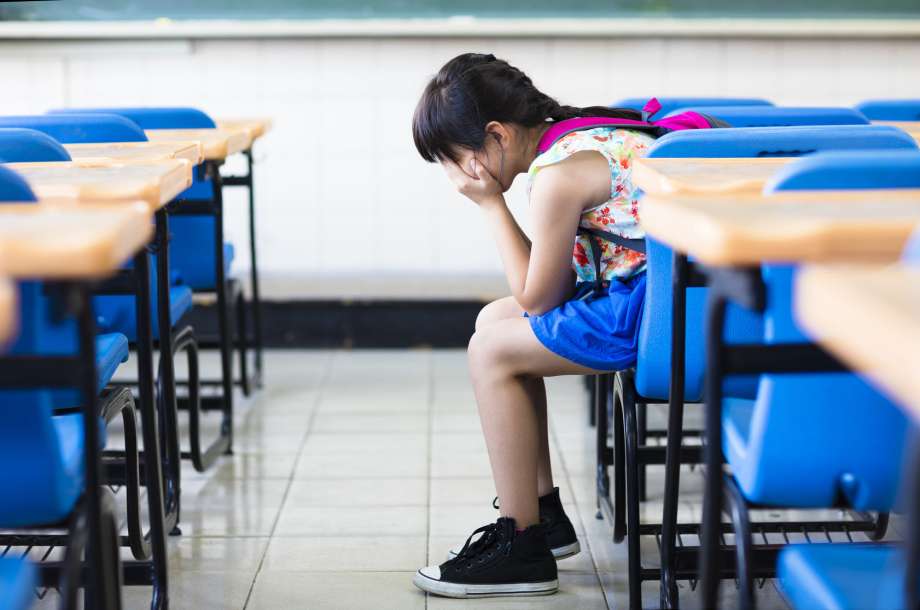How to Help Your Child Deal With Fears About School Violence

In the last week, the Parkland shooting has dominated traditional and social media coverage. You're probably wondering how it's affecting your children, and what you can do to help them process it all. Dr. Alvin Poussaint, psychiatrist, professor and Harvard faculty member, answered these questions for us after Columbine, and they still ring true today.
How do children experience the media's coverage of these events?
How children respond to memories--or news stories--of schoolyard murders will depend on their age, temperament and experience. Some children may be openly frightened. Some may fear that it could happen to them. Some may feel distanced from the possibility of violence in their own lives. Some may be unable to grasp that this really happened to real people. Some may take a protective stance of cynicism and apathy. However children respond, all of them need help and guidance from the adults who care for them.
How can parents help with children's fears?
The American School Councelor Association also has a list of tips for parents to help their kids deal with school violence.
• Try and keep routines as normal as possible. Kids gain security from the predictability of routine, including attending school.
• Limit exposure to television and the news.
• Be honest with kids and share with them as much information as they are developmentally able to handle.
• Listen to kids’ fears and concerns.
• Reassure kids that the world is a good place to be, but that there are people who do bad things.
• Parents and adults need to first deal with and assess their own responses to crisis and stress.
• Rebuild and reaffirm attachments and relationships.
Helping children feel safe about returning to school means talking with them and listening to them. Ask how they're feeling about school starting. Ask what they're excited about. Ask if they have any particular worries. Listen carefully for clues about their feelings.
Encourage them to tell you about anything that worries them, particularly children who display violence in their own schools. "Boy, the kid in that television program was really mad...do any kids you know get that angry? What would you do if you heard a kid talking about doing something violent? Or if you knew that someone in your class brought a gun to school?"
Assure them that you will be working to make their school safe.
What can parents do to help ensure school safety?
Support and become involved in violence prevention programs. There are many effective programs available, but they don't work if they're not used. Find out what your school district offers. Or whether a local youth group is interested. Or your religious community. Then offer your time.
Keep guns out of the home. If this is not possible, keep them secure from children. The easiest place for children to get a hold of weapons is in their own homes or those of family members.
Take the threat of children who threaten violence seriously. Clearly, an aggressive battle with action figures does not automatically signal horror in the making. But a kid who talks about wanting to "blow someone away" should never be dismissed. Urge school districts to increase counseling for depressed and angry students.
One of the ironies of these terrible events has been the willingness of schools to mobilize counseling after the fact to help students deal with their experiences. A preventative mobilization of these resources could be much more effective, and may perhaps prevent the loss of young lives.
The students whose schools exploded with gunfire are not the only ones who were affected. When children return to school we need to help them come to terms with their fears and do our best to prevent future violence.